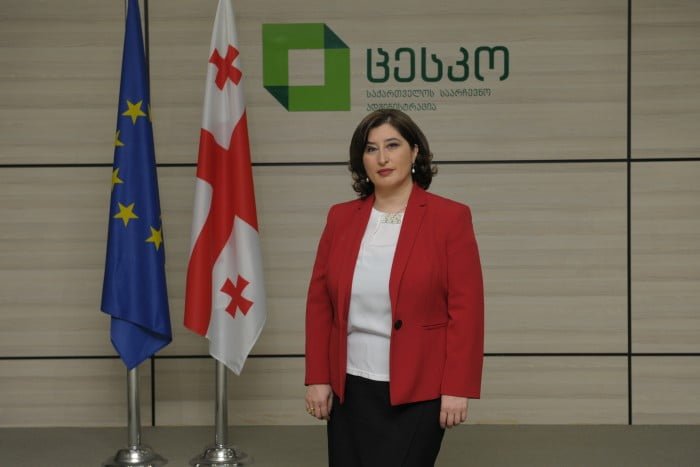Tamar Zhvania, incumbent Chair of the Central Election Commission (CEC), was re-elected for her second term on December 24.
Zhvania’s candidacy was endorsed by eight CEC members. Two more candidates were also nominated for the position; Vladimer Bozhadze, head of the Civil Society and Democracy Development Center, received one vote, while Mariam Shelegia, an employee of the Government administration, got none.
Zhvania will serve at the post for a five-year term. She was first elected in 2013. Before that, she was the elections manager at UNDP’s Tbilisi office. In 2004-2007, Zhvania worked as the executive director of the Tbilisi-based International Society for Fair Elections and Democracy.
Davit Kirtadze and Davit Gurgenidze, CEC members appointed by the United National Movement and European Georgia, respectively, criticized Zhvania’s reelection and did not attend the voting. They said the process was “pro-forma.”
“When authorities were falsifying elections, the CEC failed not only to react to it, but instead, was itself involved in the election fraud; the process is a mere formality, and I decided not to take part in this farce,” Kirtadze noted.
Gurgenidze said: “I will not take part in the voting in sign of protest, and I hope election of CEC chair by one party, without the votes of the opposition, will be an alarming signal for the ruling party that there has to be changes in the election legislation and the electoral system.”
- Six members are appointed by political parties – three of whom are from the ruling Georgian Dream-Democratic Georgia. The United National Movement, the European Georgia and the Alliance of Patriots have one member each.
- The remaining five commission members are certified election administrators, who are appointed by the Parliament. Selection of CEC chair has a separate procedure. The support of a 2/3 majority of CEC members was needed to elect the new chair.
President Salome Zurabishvili nominated three candidates for the CEC chair on December 21, following her consultations with a group of local civil society organizations a day earlier.
While representative of the Georgian Young Lawyers Association was present at the consultations, the two other leading election watchdogs – the Transparency International Georgia and the International Society for Fair Elections and Democracy – did not attend the meeting, saying the process was “pro forma,” and “hasty.”
This post is also available in: ქართული (Georgian) Русский (Russian)

